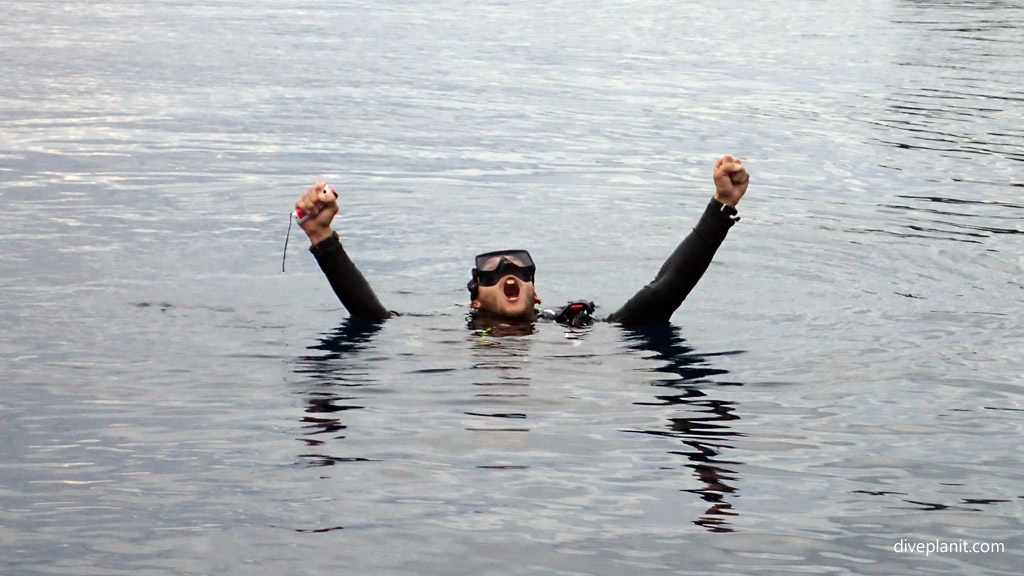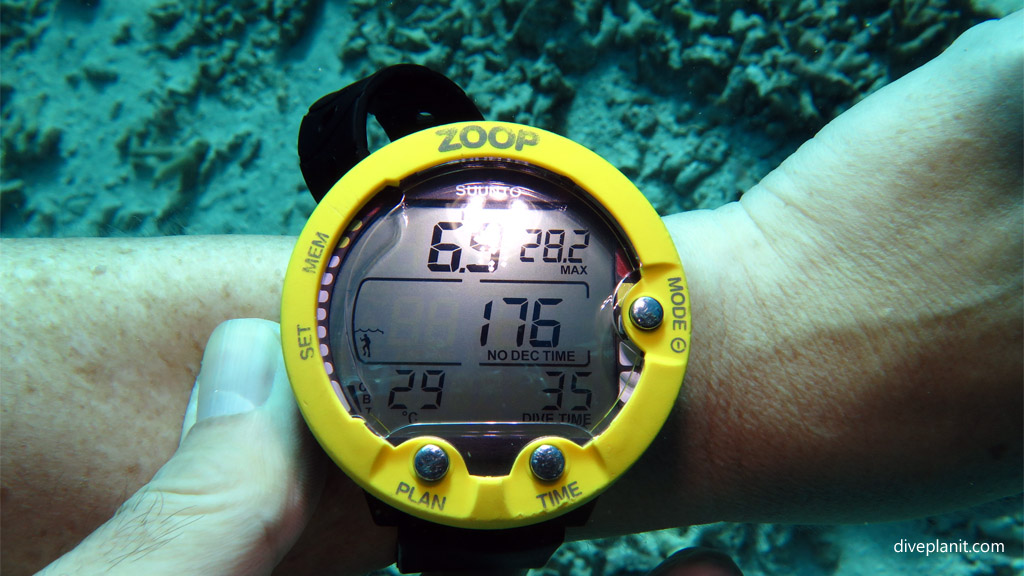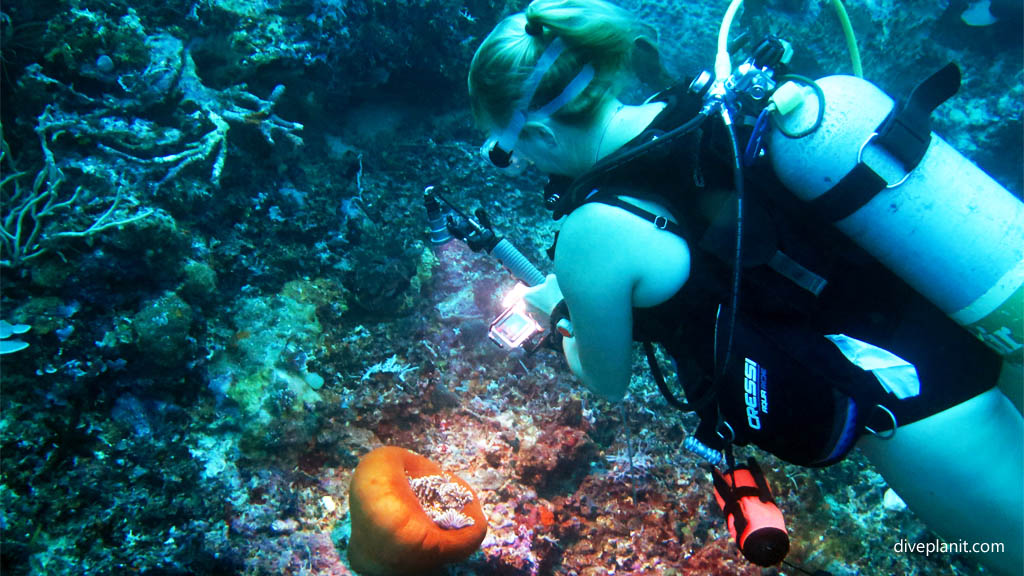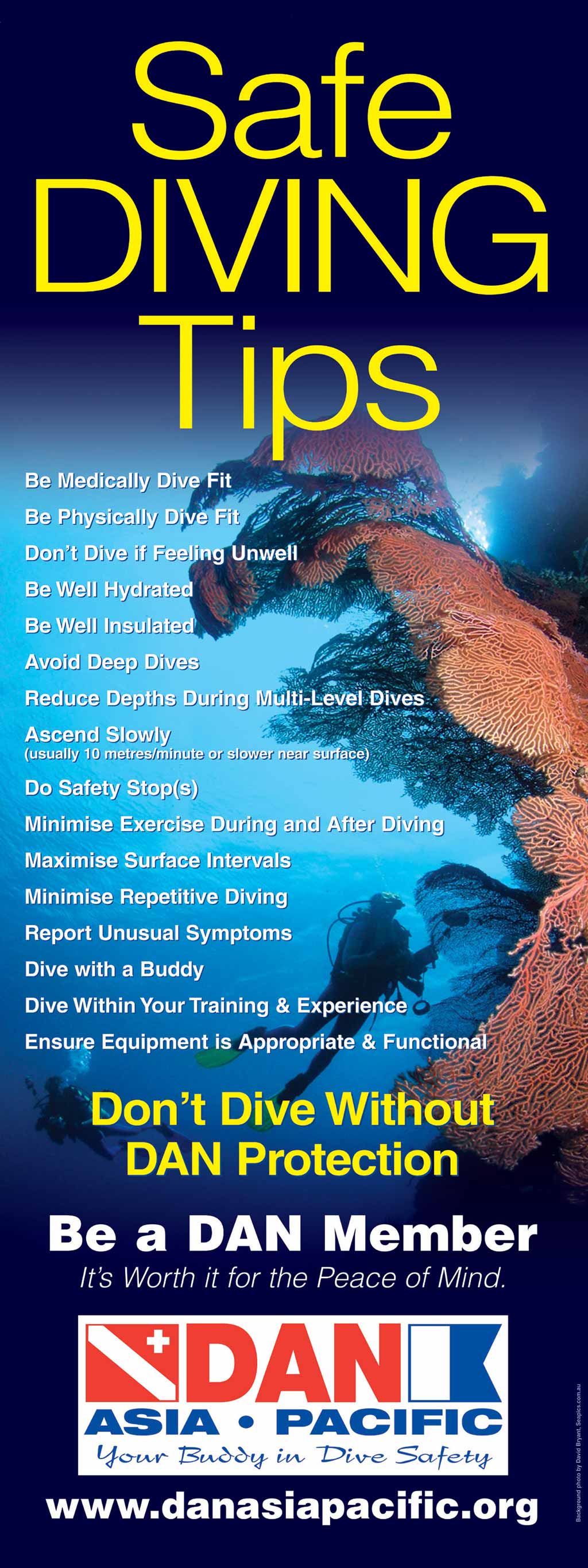Remember learning about Decompression Illness (DCI) during training and hoping you’d never really need to worry about it?
Time for a little refresher?
Most symptoms of DCI will present themselves soon after surfacing, certainly with 24-28 hours. What’s happening inside your body is little bubbles of nitrogen are forming and collecting together to form bigger bubbles.
These bubbles can affect a variety of body organs, including the brain, spinal cord, nerves, lungs, heart, tendons, muscles, bones, skin, bladder and inner ear. The severity can range from almost undetectable minor symptoms, such as mild tingling in a fingertip, to severe life threatening symptoms such as unconsciousness and absent breathing.
“It’s probably nothing …”
Pay attention to any unusual symptoms in yourself and others. Any diver with a niggle who’s thinking or saying: “It’s probably nothing…” is in denial. Most divers don’t call for help early because they don’t want to be a nuisance! Often divers decide to wait until their condition worsens before they act, and divers believe because they dived within the limits of their computer – they are necessarily safe!
FACT: almost 90% of bent divers were within the deco limits of their computer!
Remember the basics!
It’s all about nitrogen absorption: any factor that increases nitrogen uptake during the dive, such as the strenuous finning against a current at depth, is likely to increase the risk of DCI. In addition, anything that reduces nitrogen elimination during the ascent and safety stop phase, such as hovering motionless watching Nemo for 3 minutes, may also increase the likelihood of DCI.
Don’t delay … call!
Divers need a fundamental change in behaviour, accept that that unusual niggle is actually something and call DAN for advice quickly. Very often, doing so will mean that chamber treatment can be avoided as divers can be instructed to commence breathing oxygen with their dive operator.
What Can I Do to Try to Avoid Getting DCI?
There are some strategies that divers can use to try to minimise the risks. Here’s a great poster from DAN summarising them.
Engage with DAN on Facebook for insights into various dive-related safety and medical issues. For deeper information dive in here.
Bottom line: Don’t wait until your symptoms worsen. Call DAN for Advice promptly!
If you liked this post, you might also like “Insufficient Dive Planning”







